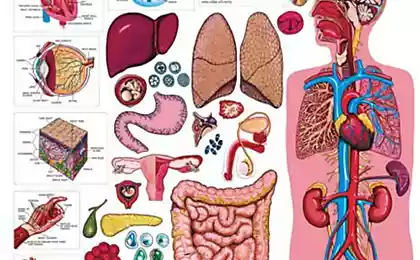415
Perfectionism – the dignity or illness?
Perfectionism is unnecessary painful pursuit of an unattainable perfection, taken to extremes. This desire to bring any thing to perfection, the tendency to present both themselves and others to high standards.
Perfectionist tries to prove to everyone that he is the most, most, most .... the best, flawless.

The main features of perfectionism:
The perfectionist believes that it is not a brilliant result – no result. And this is a big mistake.
Causes of perfectionism can be very different. Each their own:
Sooner or later, every perfectionist there is a feeling of hopelessness, fatigue and anxiety. As a consequence, on the background of chronic stress and fatigue arise weakness, headaches, aggravated chronic diseases, develops neurosis.
Perfectionism – a direct path to anxiety and depression. This is a serious problem of self-assertion and competitiveness. I remembered one of my friend who proudly told me that she, by day working as an accountant, almost daily until 2-3 o'clock in the morning scrubbed them clean cookware, negligible on both sides towels etc etc. the upshot is, unfortunately, extensive infarction at the age of 40. Her two sons of school age were left orphans....
What can you do to get rid of perfectionism?
First of all you need to bring order in your mind and stop confusing the pursuit of excellence from perfectionism. The desire of well to do their job – fine quality, which within reasonable limits is not perfectionism. If people can't afford to pass carelessly done work is not perfectionism, and responsible attitude. But if a person does not submit work on time only because he wants perfection, you only need him, and don't need others – that's perfectionism.
Therefore, the correct option:
P. S. And remember, only by changing their consumption — together we change the world! ©
Source: v-garmonii-s-soboi.ru/psihologicheskie-kompleksyi/perfektsionizm
Perfectionist tries to prove to everyone that he is the most, most, most .... the best, flawless.

The main features of perfectionism:
- Very high demands on himself;
- Focus on the "most successful";
- Constant comparison of ourselves with others;
- The perception of other people as demanding and criticizing;
- "Looping" from their mistakes and failures;
- Planning and evaluation activities on the principle of "all or nothing".
The perfectionist believes that it is not a brilliant result – no result. And this is a big mistake.
Causes of perfectionism can be very different. Each their own:
- Very often, perfectionism affects former students, accustomed to do everything just perfectly;
- Often hiding behind perfectionism fear negative evaluations: "This is a work in progress, not finished....";
- Sometimes, that perfectionism is a way longer to do what to do like what he does. This way, doing nothing to achieve the perfection, to gain time and to avoid work, which he wants to do;
Sooner or later, every perfectionist there is a feeling of hopelessness, fatigue and anxiety. As a consequence, on the background of chronic stress and fatigue arise weakness, headaches, aggravated chronic diseases, develops neurosis.
Perfectionism – a direct path to anxiety and depression. This is a serious problem of self-assertion and competitiveness. I remembered one of my friend who proudly told me that she, by day working as an accountant, almost daily until 2-3 o'clock in the morning scrubbed them clean cookware, negligible on both sides towels etc etc. the upshot is, unfortunately, extensive infarction at the age of 40. Her two sons of school age were left orphans....
What can you do to get rid of perfectionism?
First of all you need to bring order in your mind and stop confusing the pursuit of excellence from perfectionism. The desire of well to do their job – fine quality, which within reasonable limits is not perfectionism. If people can't afford to pass carelessly done work is not perfectionism, and responsible attitude. But if a person does not submit work on time only because he wants perfection, you only need him, and don't need others – that's perfectionism.
Therefore, the correct option:
- The quest for unjustified perfection to replace the desire for reasonable perfection, that is as good to do what you can within the time allocated for the case.
- To learn how to prioritize and allocate their efforts according to their degree of importance.
- To perceive failure as a natural part of life and treat them leniently.
- Often praise ourselves and see not only disadvantages but also advantages.
- Learn to get pleasure from life.
P. S. And remember, only by changing their consumption — together we change the world! ©
Source: v-garmonii-s-soboi.ru/psihologicheskie-kompleksyi/perfektsionizm






















